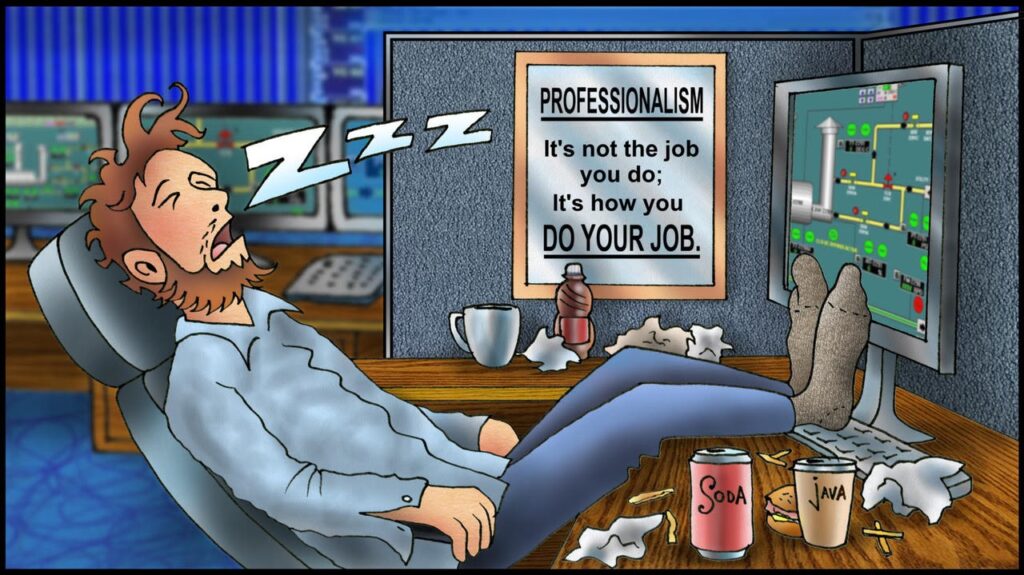What does professionalism mean to you? Does your job description mention professionalism like these controller job descriptions?
- Demonstrated professional work experience in a customer service environment, specifically with issue and conflict resolution.
- Maintains the professional competence, knowledge and skills necessary to effectively complete responsibilities.
- Able to maintain professionalism during stressful situations.
- Professional appearance and personality with attention to detail and positive attitude.
In our control room team training, the subject of professionalism generates discussions about being professional in pipeline operations, maintenance, and management. Professionalism is not the job you do; it is how you do your job. One should practice responsibility, integrity, accountability and excellence.
Here are a couple of examples where a lack of professionalism contributed to accidents:
- A controller received a high-high tank level alarm, but the radar gauge showed an abundance of working capacity in the tank. The procedure requirement was to shut down when a high-high tank level alarm was received. The controller did not shut down. The tank overflowed.
- An alarm sounded, but the gas controller didn’t hear the alarm because he was engaged in an unnecessary personal conversation. The alarm was configured to sound once. This resulted in over-pressurization and tees being blown off.
I am sure the first controller was supposed to follow procedures and the second controller was supposed to avoid distractions. I am sure everyone of us is supposed to follow procedures and avoid distractions. Humans may be affected by many factors that contribute to a lack of professionalism. Any of the Filthy Fifteen can detract from good performance.
A professional pipeliner doing any job should:
- Be prepared, organized, and fit for duty.
- Be motivated to do a good job whether working alone or with others.
- Take a systematic, thorough, and careful approach to tasks.
- Check one’s work and the work of others without making negative assumptions about the person.
- Correctly apply rules and procedures with a positive attitude and understanding of their value.
- Maintain a drive and interest in developing both technical and non-technical skills.
Control Room personnel should also:
- Ensure the control area is well-managed, clean and orderly.
- Remain alert and attentive.
- Maintain situation awareness.
- Avoid distractions.
- Make good decisions.
- Communicate appropriately.
- Assist others on the team.
- Demonstrate positive leadership in words and actions.
- Behave in ways that reflect values.
THE FILTHY 15 EDUCATIONAL PROGRAM | Charles Alday © 2020 Please Distribute to Others.




